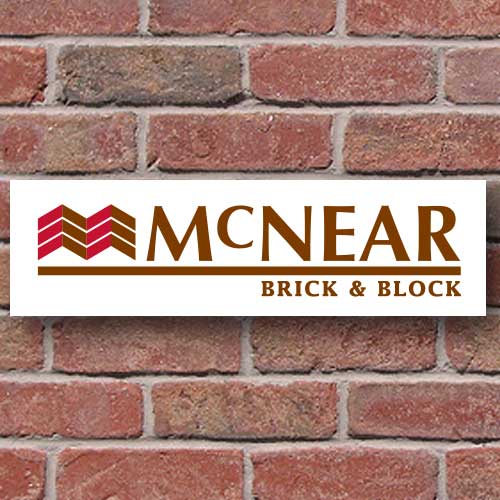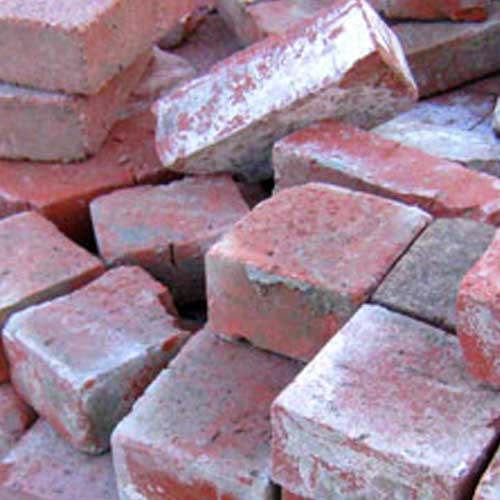RCP block & brick have long been trusted materials in construction for their durability and reliability. In the ever-evolving world of construction, there is an increasing demand for materials that not only withstand the test of time but also meet modern sustainability standards. RCP block & brick stand out as the perfect choice for builders and architects who seek strength, versatility, and aesthetic appeal. As we explore the properties, applications, and benefits of these materials, it becomes evident why they are a cornerstone of the construction industry. Whether you're constructing a commercial building or enhancing your home, understanding the nuances of RCP block & brick can significantly influence your project's success.
From ancient civilizations to contemporary skyscrapers, bricks and blocks have been instrumental in shaping our built environment. RCP block & brick, in particular, bring a blend of functionality and elegance to the table. Their robust nature ensures longevity, while their adaptability allows them to be used in a variety of architectural styles. This article delves into the world of RCP block & brick, shedding light on their unique features, applications, and why they remain a popular choice among construction professionals worldwide.
As we navigate through the intricacies of this material, we'll also address common queries surrounding RCP block & brick. By the end of this article, you'll have a comprehensive understanding of why they are indispensable in the construction industry and how they contribute to building a sustainable future. Whether you're a homeowner, contractor, or architect, this guide will provide you with the knowledge you need to make informed decisions when selecting materials for your next project.
Read also:Cheryl Cole 2024 A Comprehensive Look At Her Life Career And Impact
What Makes RCP Block & Brick Ideal for Construction?
When it comes to construction materials, the choice of block and brick can significantly impact the structural integrity and aesthetic appeal of a building. RCP block & brick are engineered to offer superior strength, making them an ideal choice for various construction projects. Their manufacturing process ensures consistency in quality and performance, which is crucial for builders aiming to meet stringent industry standards. Additionally, RCP blocks and bricks are known for their thermal and acoustic insulation properties, providing added comfort and energy efficiency to buildings.
Another advantage of RCP block & brick is their versatility. They can be used in a wide range of applications, from load-bearing walls to decorative facades. The variety of sizes, shapes, and finishes available allows architects and builders to create unique designs that meet specific project requirements. Moreover, their ability to withstand harsh weather conditions and resist fire makes them a reliable option for both residential and commercial constructions. Understanding the properties and benefits of RCP block & brick can empower builders to make choices that enhance the durability and value of their projects.
Why Should You Choose RCP Block & Brick for Your Project?
Choosing the right material for your construction project is a decision that can have long-lasting implications. RCP block & brick offer several advantages that make them a preferred choice for many builders. Firstly, their durability ensures that structures built with these materials will stand the test of time, reducing the need for frequent maintenance and repairs. Secondly, RCP blocks and bricks contribute to energy efficiency by providing excellent insulation, which can lead to significant savings on heating and cooling costs. Lastly, their aesthetic appeal allows for creative design possibilities, making them suitable for both traditional and modern architectural styles.
How Do RCP Block & Brick Compare to Other Construction Materials?
In the realm of construction materials, RCP block & brick hold their ground against competitors due to their unique set of features. Compared to traditional clay bricks, RCP blocks and bricks offer enhanced strength and consistency, which translates to better structural performance. They also outperform other concrete products in terms of durability and resistance to environmental factors such as moisture and temperature fluctuations. Furthermore, RCP block & brick provide superior insulation properties, which can lead to more energy-efficient buildings. By evaluating the pros and cons of RCP block & brick against other materials, builders can make informed decisions that align with their project goals and sustainability objectives.
Can RCP Block & Brick Be Used in Sustainable Construction?
Sustainability is a key consideration in modern construction practices, and RCP block & brick play a vital role in achieving green building standards. Their production process incorporates eco-friendly practices, reducing the carbon footprint associated with construction materials. Additionally, their durability and longevity contribute to the overall sustainability of buildings, as they require less frequent replacement and maintenance. RCP block & brick also support energy efficiency by providing excellent thermal insulation, which helps reduce energy consumption in buildings. As the construction industry continues to prioritize sustainability, RCP block & brick emerge as a viable option for environmentally conscious builders.
What Are the Common Applications of RCP Block & Brick?
RCP block & brick find applications in a wide array of construction projects due to their versatility and performance characteristics. From residential homes to large-scale commercial developments, these materials are used in constructing load-bearing walls, partitions, and facades. Their ability to withstand heavy loads makes them suitable for multi-story buildings, while their aesthetic appeal allows for creative exterior designs. Additionally, RCP block & brick are often used in landscaping and infrastructure projects, such as retaining walls and pavements, due to their durability and resistance to weathering. Understanding the diverse applications of RCP block & brick can help builders leverage their full potential in various construction scenarios.
Read also:Adragon De Mello 2025 A Comprehensive Guide To His Life Achievements And Future Prospects
How Can RCP Block & Brick Enhance Building Aesthetics?
While functionality is a primary concern in construction, the aesthetic appeal of buildings cannot be overlooked. RCP block & brick offer a wide range of textures, colors, and finishes that can enhance the visual impact of any structure. Whether you're aiming for a rustic, traditional look or a sleek, modern design, RCP blocks and bricks can be customized to meet your aesthetic preferences. Their versatility allows architects and builders to create unique patterns and designs that add character to buildings. By integrating RCP block & brick into your construction project, you can achieve both structural integrity and visual appeal, creating spaces that are both functional and beautiful.
How to Properly Install RCP Block & Brick?
Proper installation is crucial to ensuring the longevity and performance of RCP block & brick in any construction project. It begins with selecting the right materials based on the specific requirements of the project. Once the materials are chosen, it's essential to follow the manufacturer's guidelines for installation to ensure optimal results. This includes preparing the foundation, laying the blocks or bricks in a consistent pattern, and ensuring proper mortar application. Additionally, regular inspections during the installation process can help identify and address any issues early on, preventing costly repairs down the line. By adhering to best practices in installation, builders can maximize the benefits of RCP block & brick in their projects.
What Maintenance Is Required for RCP Block & Brick?
Maintaining RCP block & brick is relatively straightforward, thanks to their durability and resistance to weathering. Regular cleaning with mild detergent and water can help preserve their appearance and prevent the buildup of dirt and grime. It's also important to inspect the structures periodically for signs of wear and tear, such as cracks or loose mortar, and address these issues promptly to prevent further damage. In areas prone to harsh weather conditions, applying a protective sealant can enhance the longevity of RCP blocks and bricks. By implementing a routine maintenance schedule, builders and homeowners can ensure that their RCP block & brick structures remain in excellent condition for years to come.
Can RCP Block & Brick Be Used in Extreme Weather Conditions?
One of the standout features of RCP block & brick is their ability to withstand extreme weather conditions. Whether it's scorching heat, heavy rainfall, or freezing temperatures, these materials maintain their integrity and performance. Their composition and manufacturing process ensure that they are resistant to thermal expansion, moisture absorption, and frost damage. This makes them a reliable choice for construction projects in regions with unpredictable or harsh climates. By selecting RCP block & brick for your construction needs, you can have peace of mind knowing that your structures are built to last, regardless of the weather conditions they face.
Conclusion: Why RCP Block & Brick Are Essential in Modern Construction
In conclusion, RCP block & brick offer a perfect blend of strength, versatility, and aesthetics, making them indispensable in modern construction. Their ability to meet the demands of both traditional and contemporary architectural styles, coupled with their sustainability and energy efficiency, positions them as a top choice for builders and architects worldwide. As we continue to advance in construction technology and practices, RCP block & brick remain at the forefront, providing reliable solutions for a wide array of building projects. By embracing the advantages of RCP block & brick, we can build a future that is both durable and sustainable.
Table of Contents
- What Makes RCP Block & Brick Ideal for Construction?
- Why Should You Choose RCP Block & Brick for Your Project?
- How Do RCP Block & Brick Compare to Other Construction Materials?
- Can RCP Block & Brick Be Used in Sustainable Construction?
- What Are the Common Applications of RCP Block & Brick?
- How Can RCP Block & Brick Enhance Building Aesthetics?
- How to Properly Install RCP Block & Brick?
- What Maintenance Is Required for RCP Block & Brick?
- Can RCP Block & Brick Be Used in Extreme Weather Conditions?
- Conclusion: Why RCP Block & Brick Are Essential in Modern Construction

